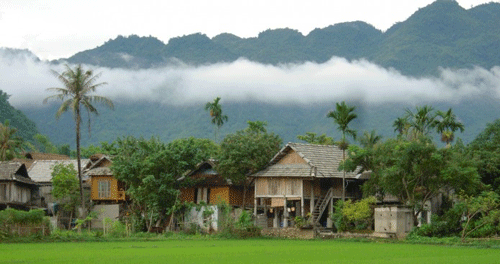The Muong are the second largest Ethnic Minorities in Vietnam, as well as one of the largest Ethnic groups in the Indochina region. The Muong live in the mountainous slopes of north central Vietnam, from the downstream of Da River to upstream of Ma River. They speak Mon- Khmer and believe that non-living objects have spirits. Time makes their belief in many of traditional superstitions declined. However, their culture, lifestyle, beliefs and customs are attractive.
One of the most expressed things is their wedding ritual. Take a look at the weird and unique wedding ritual of the Muong in Hoa Binh to discover their traditional ceremony.
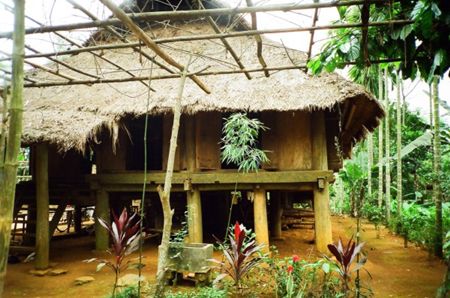
Similarly as all the Ethnic groups in North Vietnam, the wedding ceremony of the Muong still has the reverberation the traditional ritual although it has been simplified in recent years. Many years ago, marriage was parent’s matter. Their parents arranged the marriage of children, their sons and daughters had no speech in their marriage. Today, when modern life and belief attack their old thought, young boys and girls are free to date and have right to decide their future husbands and wives.
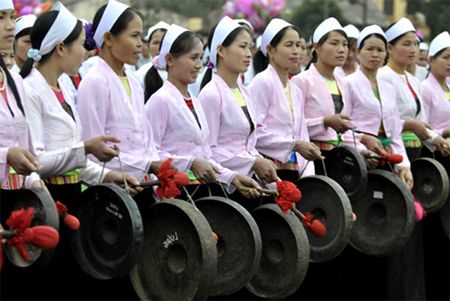
With the Muong, wedding ceremony is the important event; therefore, it takes several months or even a year to prepare for a wedding. The boy’s family will discuss with all their relatives about the agreement on the marriage. If no one disagrees, they will choose a prestigious man or woman serve as matchmaker to arrange all the steps of the wedding. The matchmaker is an important figure who represents the bridegroom’s family in making the proposal and discussing preparations. The matchmaker brings two bottles of wine and a tea bag to the future bride’s family to ask for the acceptation of the marriage proposal. If the future bride’s family accepts the request of marriage, they will receive two bottles of wine and a tea and discuss about the wedding presents.
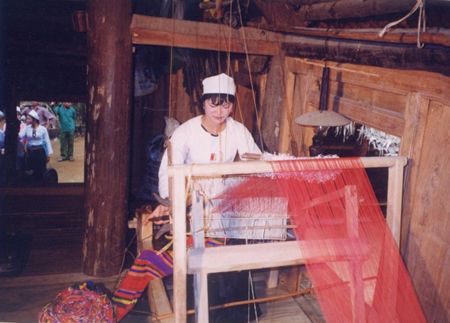
Wedding present is one of the customs of Vietnam culture in some particular regions especially in Ethnic Minorities. The Muong still keep the unique custom. Normally, the groom’s family is asked for something by the bride’s family such as a small buffalo, a basket of round sticky rice cakes with no filling to represent the bride’s virginity, some money as the marriage portion of the bride, about 60 liters of wine, 60 kg of rice, and a quantity of betel leaves and areca nuts.
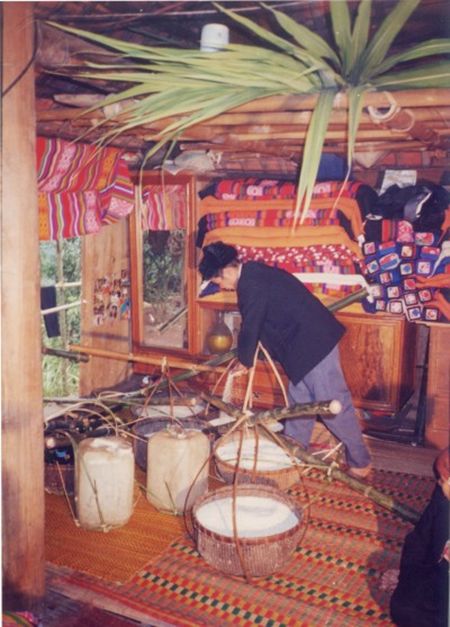
After listening to the request of the bride’s family, the matchmaker informs the groom’s family. If the groom’s family can afford the request of the bride’s family, the matchmaker informs the bride’s family, and then the wedding is celebrated. If the groom’s family doesn’t agree, the matchmaker can try to negotiate a better deal for them. The bride’s family will gather in full numbers to receive the matchmaker and listen to the groom’s family’s ideas. If everything is ok, they will discuss the wedding time and date and other preparations. The matchmaker is a very necessary person who is responsible for arranging everything smoothly. He or she visits from the groom’s family to bride’s family many times to confirm everything and discussion of the wedding’s preparation.
The matchmaker informs the boy’s family of the girl’s request. If the boy’s family doesn’t agree, the matchmaker can try to negotiate a better deal for them. Bui Van Vien, a prestigious and well-spoken man in Dich Giao commune, is often invited to be a matchmaker. Vien says: “I was a matchmaker for many marriages over the past 20 years. I bring the offering of the boy’s family to the girl’s family and make a marriage proposal. The girl’s family will gather in full numbers to receive the matchmaker and listen to the boy’s family’s ideas. We discuss the wedding time and date and other preparations. I inform the boy’s family of the meeting and the wedding present and re-visit the girl’s family to confirm everything. The matchmaker is responsible for arranging everything smoothly.”
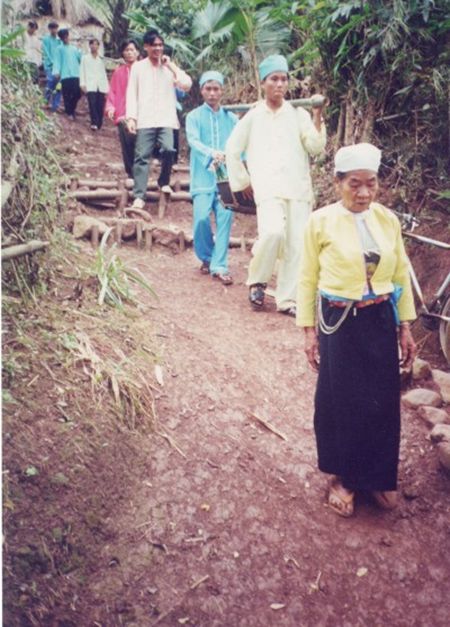
All the wedding presents are brought to the bride’s family one day prior to the wedding. After welcoming the bride home, the groom’s family gives gifts to the matchmaker and people accompanying the bride and the groom. Traditionally, after the wedding ceremony, the bride mustn’t be in her husband’s house immediately. She has to work for her husband’s family, but she can return to her home at night. After a long time, the wife has to live in her husband’s home permanently, usually after the birth of their first child. The Muong uphold the custom that the bride returns to her parent’s house for a couple of days before living with the groom’s family ever after.
Each region in Vietnam has its own traditional custom of wedding ceremony. Therefore, tourists are always excited when meeting a wedding ceremony especially the Ethnic Minorities’ wedding ritual during their Northern Vietnam tours especial the North Vietnam tours.









